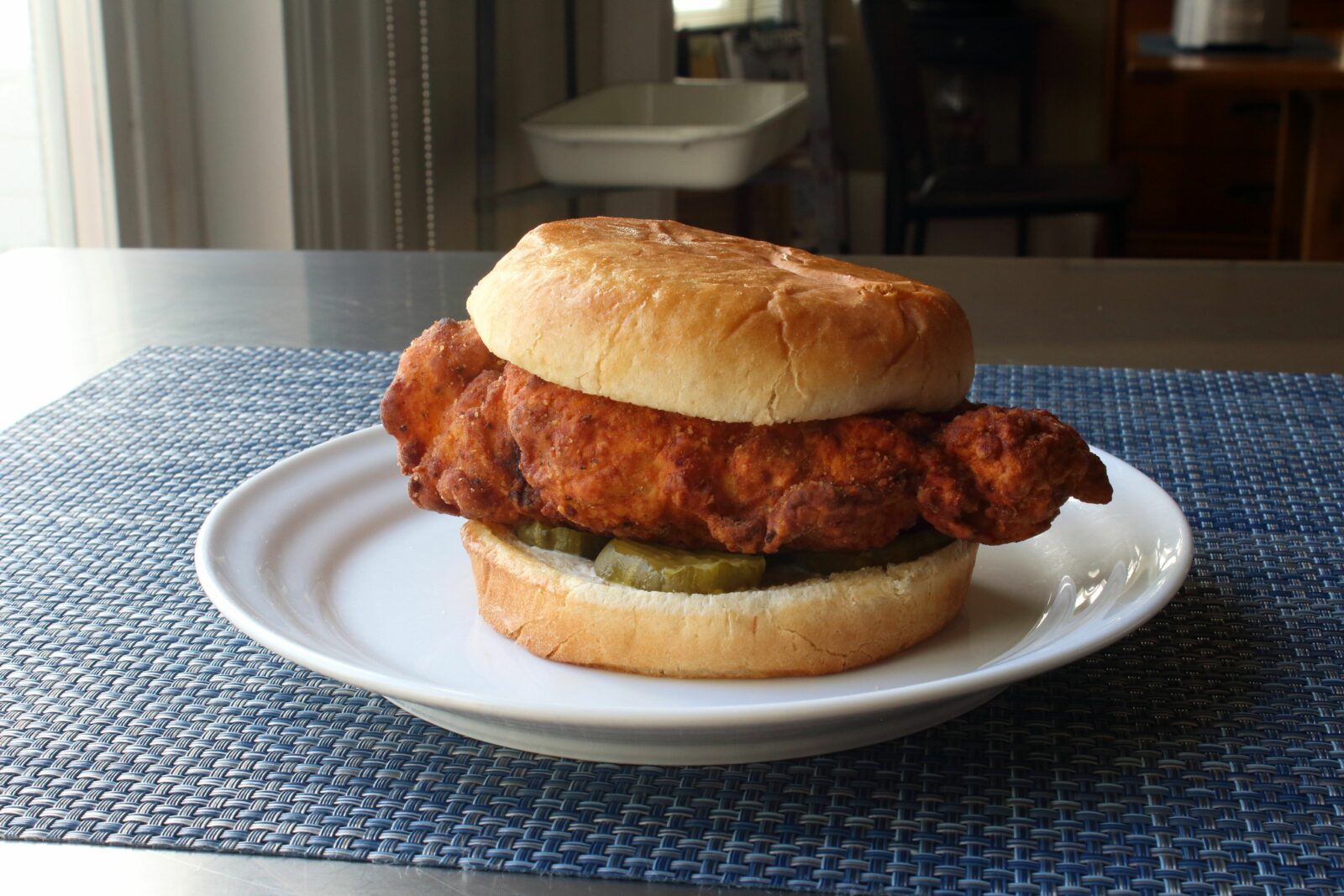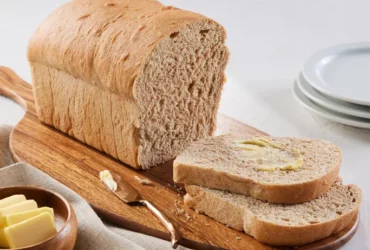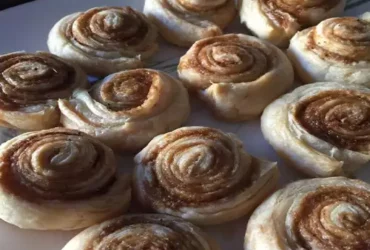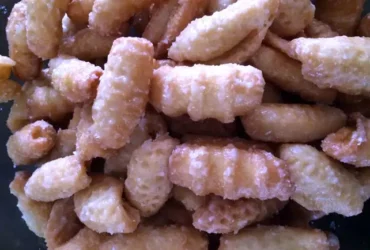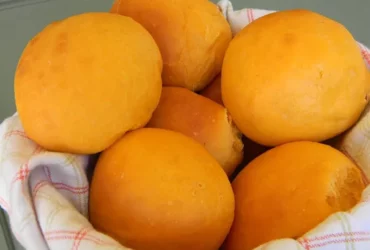History of Food Wishes
A Brief Timeline
Food Wishes, with its catchy name and enthusiastic host Chef John, has been a staple in the world of online cooking for over a decade.
The journey of Food Wishes began in 2007, when Chef John first launched his YouTube channel, initially focusing on short, straightforward recipe videos that showcased various dishes from around the world.
Over time, as the channel gained traction and popularity, it became clear that the secret to its success lay not just in the recipes themselves but also in the charismatic personality of its host, Chef John.
With his warm on-camera presence, infectious enthusiasm, and clever use of humor, Chef John was able to connect with viewers from all walks of life, making complex cooking techniques seem approachable and fun.
The early days of Food Wishes saw the channel growing rapidly, with new recipe videos being uploaded regularly. The content focused primarily on Western cuisine, including American classics, Italian dishes, and comfort food staples.
However, as the years went by, Chef John began to experiment with more diverse cuisines, exploring flavors from Asia, Latin America, and even some unexpected international twists on familiar favorites.
In 2009, Food Wishes reached a significant milestone, surpassing the one-million-view threshold for individual videos. This marked a turning point in the channel’s growth, as it began to attract more mainstream attention.
With increased visibility came opportunities for collaborations and partnerships with top food brands and food media outlets. Chef John leveraged these connections to expand his reach, appearing on TV shows, cooking at events, and sharing his expertise through social media platforms.
The year 2011 saw the introduction of the ‘Quick & Easy’ series within Food Wishes, focusing on fast, weeknight meals that could be prepared in under 30 minutes. This addition to the channel further emphasized Chef John’s commitment to making cooking accessible for busy home cooks.
By this time, the Food Wishes community had grown significantly, with thousands of subscribers sharing their own stories and connecting with one another through the comments section on YouTube.
The next few years witnessed continued expansion into new areas, such as product reviews, kitchen hacks, and even forays into meal planning and grocery shopping advice.
In 2017, Food Wishes celebrated its 10-year anniversary, marking a decade of growth, learning, and shared passion for cooking among the community. Chef John expressed his gratitude to viewers for their support throughout the years, acknowledging that the success of the channel was directly linked to the enthusiasm and engagement from its fans.
Today, Food Wishes remains one of the most popular online cooking channels worldwide, with a diverse library of content spanning countless cuisines and recipe types. Chef John’s dedication to innovation, creativity, and viewer interaction continues to set the standard for online cooking platforms.
The concept of Food Wishes was born in 2006 when Chef John created a video on how to make a perfect chocolate mousse.
The concept of Food Wishes was born in 2006 when Chef John created a video on how to make a perfect chocolate mousse, showcasing his expertise and passion for cooking.
This initial video marked the beginning of a revolutionary approach to food education and culinary knowledge sharing, which would eventually become the hallmark of Food Wishes.
Chef John’s goal was to empower home cooks with the skills and confidence to create delicious meals and desserts that rival those found in high-end restaurants.
With his signature wit, charisma, and crystal-clear instructions, Chef John made cooking accessible and fun for audiences around the world.
Over time, Food Wishes evolved into a comprehensive online resource, featuring an extensive library of free video recipes, covering a wide range of cuisines and cooking techniques.
The website’s popularity soared as viewers from all walks of life discovered Chef John’s engaging tutorials, which not only taught them how to cook but also shared the joy of sharing meals with others.
Food Wishes soon became synonymous with innovative recipes, expert guidance, and a dash of humor, making it the go-to destination for cooking enthusiasts seeking inspiration and motivation.
As the website continued to grow and flourish, Chef John remained committed to his core values: simplicity, clarity, and the pursuit of culinary excellence.
Through Food Wishes, he has inspired countless home cooks to experiment with new flavors, ingredients, and techniques, fostering a global community that shares a passion for cooking and sharing meals together.
To this day, Food Wishes remains a testament to Chef John’s dedication to food education, innovation, and the joy of cooking, continuing to inspire and delight audiences around the world with its rich history, engaging content, and timeless culinary wisdom.
Culinary Philosophy and Style
Key Principles
Culinary philosophy encompasses the underlying beliefs and values that guide a chef’s approach to cooking, shaping their style and influencing the creation of dishes.
At its core, culinary philosophy is concerned with the connection between food, culture, and identity, reflecting a chef’s perspective on what makes a meal more than just sustenance.
Chefs may subscribe to various philosophical frameworks that dictate their approach to cooking, such as:
- Locavore philosophy: emphasizes the importance of using locally sourced ingredients to promote community engagement and environmental sustainability.
- Farm-to-table philosophy: focuses on building direct relationships with farmers and producers to highlight seasonal produce and promote responsible food sourcing.
- Vegan or vegetarian philosophy: prioritizes plant-based eating as a means of promoting animal welfare, environmental stewardship, and holistic well-being.
These philosophies influence the selection of ingredients, cooking techniques, and presentation styles, ultimately contributing to a chef’s distinct culinary voice.
Chefs may also draw inspiration from various cuisines or cultures, incorporating elements that resonate with their personal values and vision for their food. This blending of influences can result in innovative and distinctive culinary styles.
For example:
- Modern American cuisine: a fusion of diverse flavors and techniques from different cultural backgrounds to create fresh and dynamic dishes.
- Fusion cuisine: the blending of different international cuisines, such as Asian-fusion or Latin-Asian fusion, to produce unique flavor profiles and textures.
Chefs’ personal philosophies also guide their approach to cooking techniques and presentation. Some may emphasize:
- Simple preparation: using straightforward methods to let the natural flavors of ingredients shine.
- Technique-driven dishes: showcasing precise, intricate preparations as a means of conveying technical mastery.
Presentation styles can also reveal a chef’s underlying philosophy. For instance:
- Fine dining presentation: emphasizing visual elegance and artistry to create an immersive culinary experience.
- Casual, rustic presentation: embracing an unpretentious approach that highlights the natural beauty of ingredients.
In conclusion, a chef’s culinary philosophy serves as the foundation for their cooking style, influencing every aspect of their craft – from ingredient selection to presentation techniques. By understanding and appreciating these underlying philosophies, food enthusiasts can gain deeper insight into the creative vision that shapes the dishes we enjoy.
Chef John emphasizes the importance of simplicity, accessibility, and technique in cooking, citing the Harvard School of Public Health’s research on the benefits of home cooking for public health.
Culinary philosophy and style, as embodied by Chef John, revolves around the importance of simplicity, accessibility, and technique in cooking.
Simplicity is a key component of Chef John’s culinary philosophy, as he emphasizes that the best dishes are often those that are unencumbered by excessive ingredients or complicated preparations.
He cites the Harvard School of Public Health’s research on the benefits of home cooking for public health, highlighting the significance of cooking in a way that is both easy to replicate and nutritious.
This focus on simplicity allows individuals to take control of their own culinary experience, rather than relying on overly elaborate or commercialized products.
Accessibility is another crucial aspect of Chef John’s approach, as he advocates for using ingredients and techniques that are widely available and affordable.
By making cooking more accessible, Chef John aims to empower people to take charge of their own health and well-being through the power of food.
This accessibility also extends to the use of technique as a fundamental building block of culinary mastery. Chef John stresses that mastering basic techniques is essential for creating consistently delicious dishes.
Through his Food Wishes® with Chef John, he shares a wealth of knowledge and expertise with home cooks, providing them with the skills and inspiration needed to unlock their full potential in the kitchen.
Ultimately, Chef John’s culinary philosophy is centered around promoting a deeper understanding and appreciation of food, cooking, and health, thereby fostering a more compassionate and informed relationship with our plates.
Recipe Development and Video Production
The Process
Chef John’s process for developing new recipes begins with careful consideration of flavor profiles, ingredient combinations, and cooking techniques.
He typically starts by brainstorming a concept or theme for the dish, whether it be a specific cuisine, a seasonal ingredient, or a particular cooking method.
Next, he experiments with various ingredients and seasonings to create a unique flavor profile that sets the recipe apart from others in its category.
Chef John often draws inspiration from his travels, cookbooks, and food blogs to stay up-to-date on current trends and flavors.
Once he has developed a solid recipe concept, he begins to refine it through trial and error, making adjustments as needed to ensure the dish is both delicious and visually appealing.
The video production process typically begins several days or even weeks before filming, with prep work including scriptwriting, storyboarding, and equipment checks.
Chef John works closely with his team to finalize the recipe, rehearse any necessary techniques, and plan out the logistics of the shoot, including scheduling and location scouting.
On the day of filming, Chef John is responsible for preparing ingredients, setting up equipment, and ensuring that everything runs smoothly throughout the production process.
He works closely with his videographer to capture high-quality footage of each step, from preparation to plating and final presentation.
The post-production process involves reviewing and editing the footage, adding music and graphics as needed, and making any final adjustments before uploading the completed video to social media platforms or the Food Wishes website.
Each recipe is carefully selected and developed with a focus on classic techniques and minimal ingredients, adhering to government guidelines on food labeling and nutrition information.
At Food Wishes, we are dedicated to providing our viewers with a wide range of recipe ideas that cater to different tastes and dietary needs. Our team of chefs and food experts work tirelessly to develop recipes that are not only delicious but also easy to make at home.
The key to our success lies in the careful selection and development of each recipe, focusing on classic techniques that have stood the test of time. By using minimal ingredients, we ensure that our dishes are authentic and uncomplicated, allowing viewers to focus on the cooking process rather than feeling overwhelmed by unnecessary components.
We understand the importance of adhering to government guidelines on food labeling and nutrition information, and we strive to provide accurate and transparent details for each recipe. This includes listing ingredients in metric measurements, providing calorie counts per serving, and offering suggestions for substitutions or modifications as needed.
To bring these recipes to life, we invest heavily in high-quality video production that showcases the cooking process from start to finish. Our team of experienced videographers and editors work together to create visually stunning footage that is both informative and engaging.
We follow a strict recipe development and video production process to ensure consistency across all of our content. Here’s an overview of how we approach this process:
Recipe Development
- Selecting Recipes: Our team selects recipes based on their relevance, originality, and alignment with government guidelines.
- Chef Testing: Experienced chefs test and refine each recipe to ensure authenticity and minimal ingredients.
- Nutrition Information: We provide detailed nutrition information for each recipe, including calorie counts and metric measurements.
Video Production
- Scripting: Our team creates a script that highlights the key steps in the cooking process and provides engaging dialogue.
- Videography: We invest in high-quality videography to capture visually stunning footage of each recipe being prepared.
- Editing: Our experienced editors work tirelessly to ensure that each video is well-paced, informative, and entertaining.
Post-Production
- Audio Engineering: We refine the audio levels and quality to ensure that the commentary is clear and easy to hear.
- Color Grading: Our team applies a consistent color grading style to all of our videos, creating a visually appealing aesthetic.
- Captioning and Translation: We provide accurate captions and translations for each video, ensuring accessibility for viewers with disabilities or non-native English speakers.
By following this rigorous process, we are able to produce high-quality content that meets the needs of our diverse audience. Whether you’re a seasoned chef or a beginner in the kitchen, our recipes and videos will guide you through each step, ensuring that your culinary creations turn out delicious every time.
- Best Datanyze Alternatives for 2025 - April 24, 2025
- Best Hunter.io Alternatives for 2025 - April 22, 2025
- Best Lead411 Alternatives for 2025 - April 22, 2025

